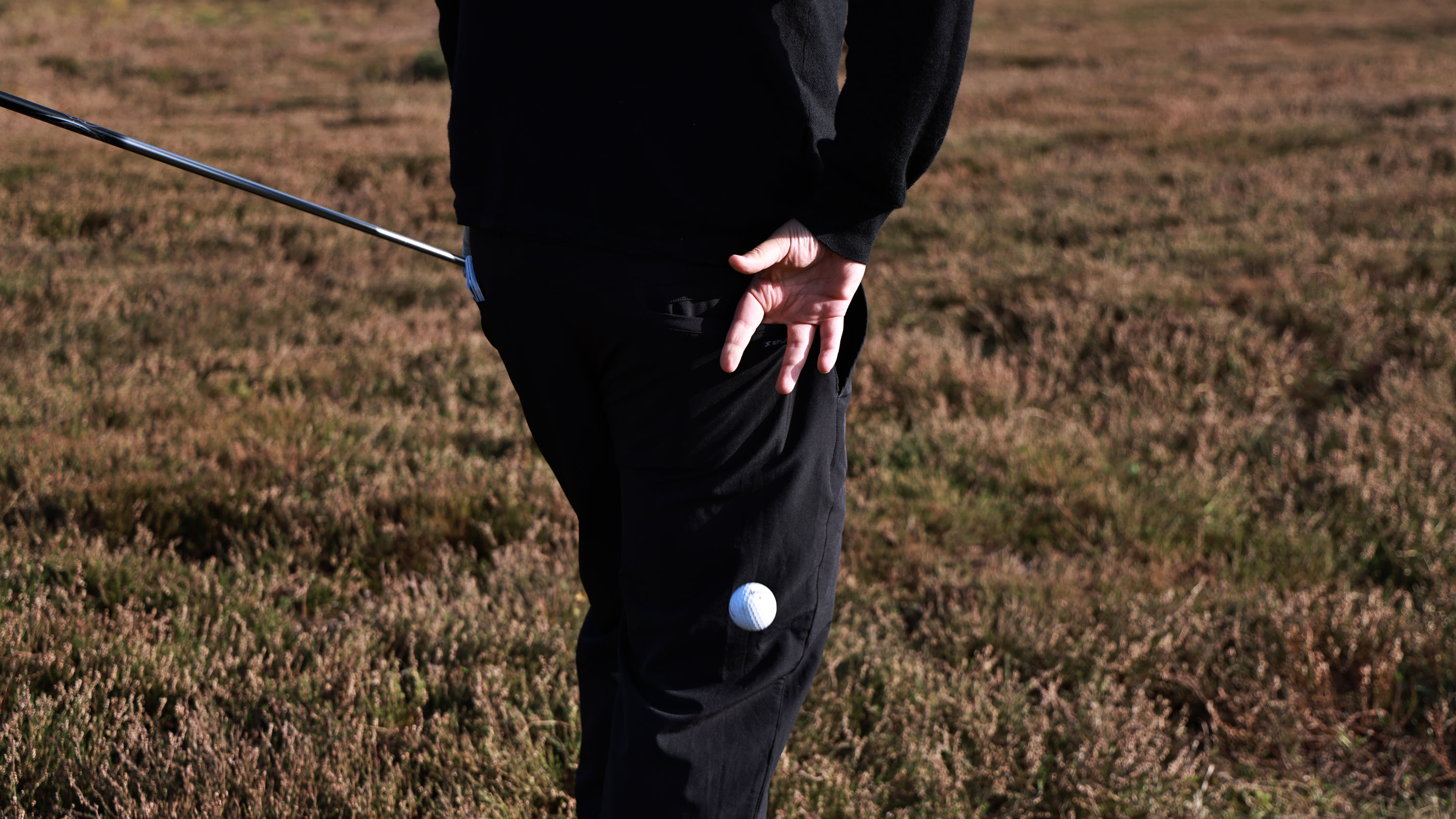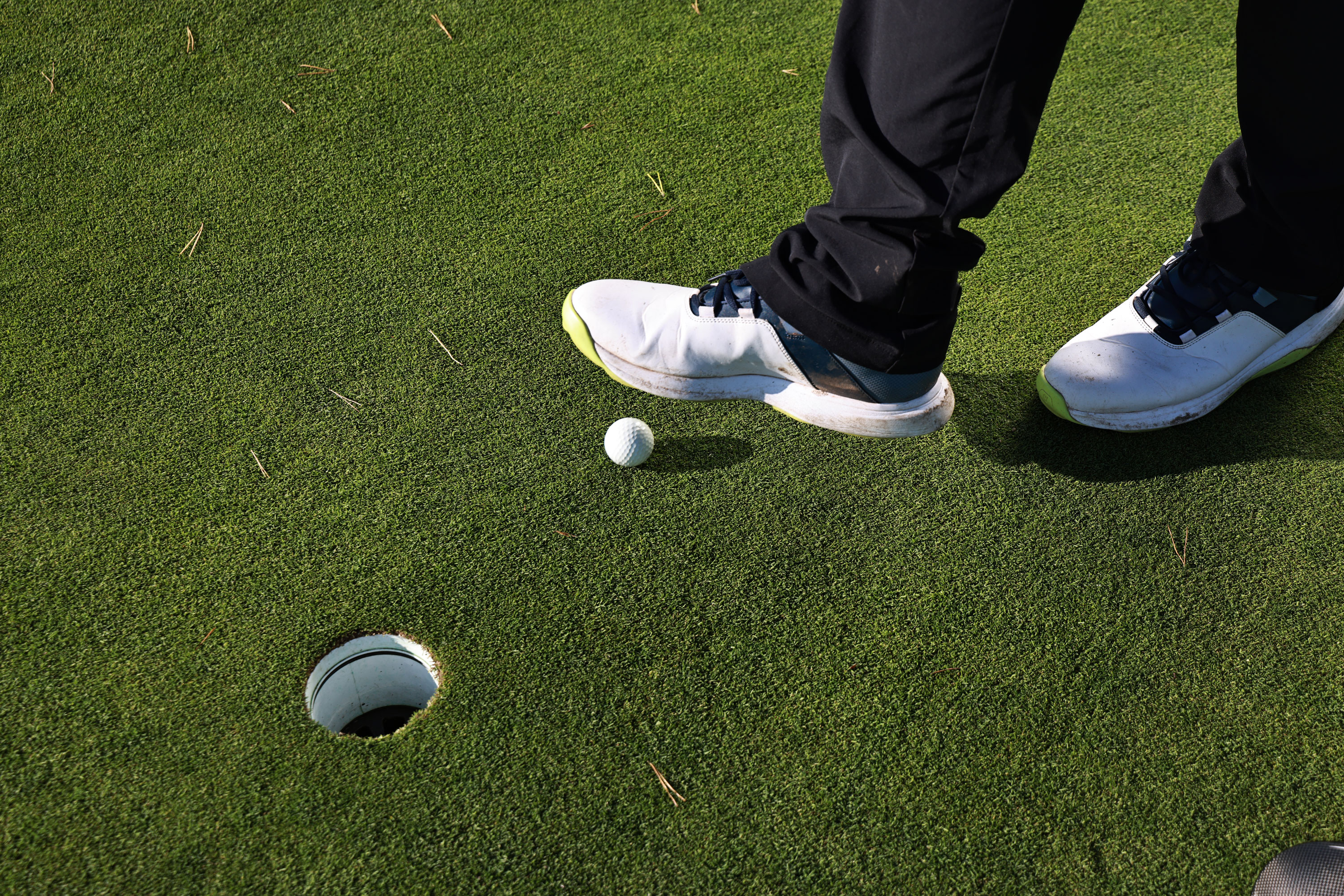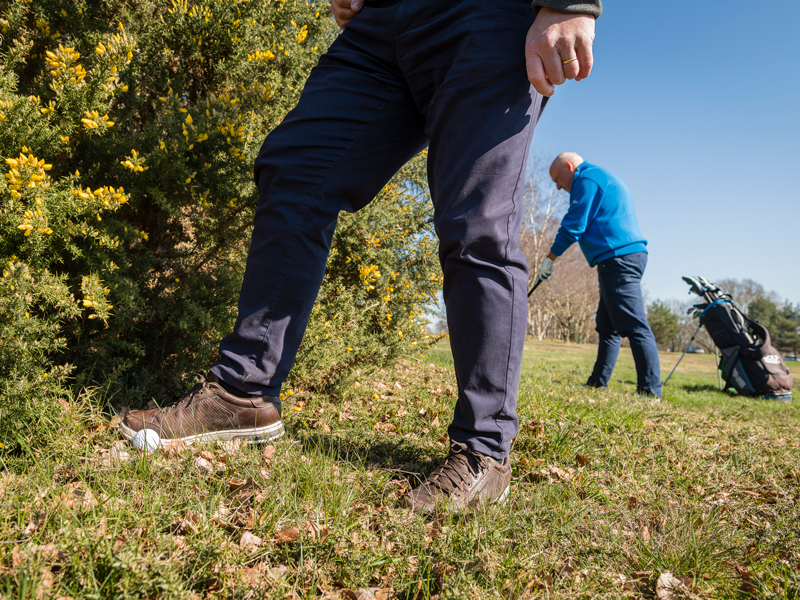What Should You Do If You Know Someone Has Cheated?
If you see someone breaking the Rules and it looks like they’ve done it wilfully, what should you do? Should you approach them? Should you report it?


Subscribe to the Golf Monthly newsletter to stay up to date with all the latest tour news, equipment news, reviews, head-to-heads and buyer’s guides from our team of experienced experts.
You are now subscribed
Your newsletter sign-up was successful
Want to add more newsletters?

Delivered daily
Daily Newsletter
Sign up for all the latest tour news, gear reviews, head-to-heads and buyer’s guides plus features, tips from our top 50 coaches and rules advice from our expert team.

Once a week
Kick Point
Sign up to our free Kick Point newsletter, filled with the latest gear reviews and expert advice as well as the best deals we spot each week.

Once a week
Women's Golf Edit
Sign up to our free newsletter, filled with news, features, tips and best buys surrounding the world of women’s golf. If you’re a female golfer, you won’t want to miss out!
Golf is a sport that demands player integrity. And, in the main, honesty runs through the heart of the sport. Bobby Jones once said he might as well be praised for “not robbing a bank,” when he was applauded for calling a penalty on himself when his ball moved slightly in the rough.
There are so many instances within golf when a player must be honest with themselves about what has happened.
Did you nudge that ball and cause it to move? Did you ground the club in that bunker? Are you dropping at the nearest point of complete relief, rather than the “nicest” point of complete relief?
It’s up to you as a golfer to understand the Rules and to play by them. But, when playing in competition, you also have a duty to the rest of the field to keep an eye on your playing partners and make sure they are also playing by the Rules.
Often, the Rules can be complicated, and misunderstandings can easily take place. You might see a playing partner taking an incorrect drop or looking to claim relief from a situation where no relief is available.
It’s your responsibility to help make sure that playing partners get it right and don’t unknowingly or unintentionally break The Rules. Other players should always be appreciative if they’re kept on the right track and prevented from breaking the Rules.
Not only will you save them a potential penalty, but you will also have given them guidance so they don’t make future mistakes.
Subscribe to the Golf Monthly newsletter to stay up to date with all the latest tour news, equipment news, reviews, head-to-heads and buyer’s guides from our team of experienced experts.
If you’re too late and you see someone playing on after breaking the Rules in a way that is obviously not wilful. Say they have taken a two-club length drop when they should have taken only one for instance. Again, it’s your responsibility to protect the rest of the field and to let them know and make sure any resultant penalties are applied.
It might be tricky to do but most people will not want to have “cheated” and would rather accept a penalty than put in a score that is lower than it ought to have been. Again, they will not make the same mistake again in future when the correct Rule is pointed out to them.

Yeah, that one went in!
Wilfully cheating
But what if you see someone wilfully cheating? What if you spy them moving a ball out from behind a tree, or playing a ball that clearly isn’t their's? What if they pretend they haven’t just whiffed a ball in a difficult lie?
Well, it’s tougher than when dealing with someone simply misunderstanding the Rules. With them you’re helping them out by pointing out when a mistake has been made.
With someone you think/know has been deliberately dishonest, you will have to effectively accuse them of being a cheat. That’s a big thing in golf and not an accusation to make lightly.
First thing is, have any other playing partners in the group seen the incident that has caused you concern? If they have and have come to the same conclusion then you have back up which could come in very useful.
If you are sure you have seen someone “cheat” you owe it to the rest of the field to do something about it.
Firstly, you should approach the player you have seen breaking the Rules and ask them to talk through what has happened. You must give them an opportunity to explain themselves, perhaps even to confess they have made a mistake.
That would be the simplest way to rectify a difficult situation. A penalty could be applied if the hole has not been completed, or the player might accept disqualification if the hole has been completed and play started on the next hole.
If you are able to calmly voice your concerns and agree an error of judgement has been made, a valuable lesson could be learned and nobody in the field will be harmed by the corrected indiscretion.

The 'magic foot' in action
What though if the player denies any wrongdoing but you are certain that a Rule or Rules have been broken?
If you believe the player's score to be incorrect, you could refuse to certify their score (if you are their marker.) It would then be down to the committee to decide whether they will accept the score without certification.
The committee will have to decide how to resolve a question of fact. The testimony of all the players involved (and anyone else who witnessed the incident) will be taken into account and the committee will decide on a course of action based on all available evidence.
It will likely come down to one person’s word against another's, unless more than one player or spectator witnessed the incident in question.
If it is just one on one though, the benefit of the doubt is generally given to the player. It will be up to their conscience.
But, even if they vehemently deny any wrongdoing, you are still doing the right thing by reporting what you saw to the committee. As mentioned above, you have a responsibility to do what you can to protect the field in the competition.
What to do then if you know for certain someone has cheated? Approach them and ask for an explanation, or for them to accept the appropriate penalty. If that explanation isn’t satisfactory, or they refuse to acknowledge wrongdoing, report the incident to the committee.

Fergus is Golf Monthly's resident expert on the history of the game and has written extensively on that subject. He has also worked with Golf Monthly to produce a podcast series. Called 18 Majors: The Golf History Show it offers new and in-depth perspectives on some of the most important moments in golf's long history. You can find all the details about it here.
He is a golf obsessive and 1-handicapper. Growing up in the North East of Scotland, golf runs through his veins and his passion for the sport was bolstered during his time at St Andrews university studying history. He went on to earn a post graduate diploma from the London School of Journalism. Fergus has worked for Golf Monthly since 2004 and has written two books on the game; "Great Golf Debates" together with Jezz Ellwood of Golf Monthly and the history section of "The Ultimate Golf Book" together with Neil Tappin , also of Golf Monthly.
Fergus once shanked a ball from just over Granny Clark's Wynd on the 18th of the Old Course that struck the St Andrews Golf Club and rebounded into the Valley of Sin, from where he saved par. Who says there's no golfing god?
You must confirm your public display name before commenting
Please logout and then login again, you will then be prompted to enter your display name.